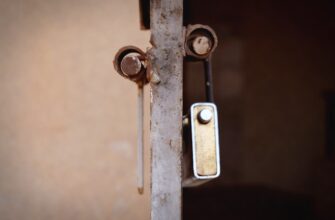Securing your private key is one of the most critical steps in protecting your cryptocurrency assets. With the rise of digital wallets and online exchanges, the risk of private key theft or loss has increased significantly. However, you don’t need to sacrifice security for cost. This guide will explore the best ways to secure your private key on a low budget, including practical tips, cost-effective solutions, and answers to common questions.
### Why Securing Your Private Key Matters
A private key is a cryptographic code that grants access to your cryptocurrency wallet. If it’s lost, stolen, or compromised, your funds could be at risk. While high-end security solutions exist, they often come with a price tag. This article focuses on affordable methods to protect your private key without breaking the bank.
### Best Practices for Securing Your Private Key on a Low Budget
1. **Use a Hardware Wallet**
Hardware wallets are physical devices that store private keys offline, making them highly secure. While they are more expensive than software wallets, many budget-friendly options are available. For example, the Ledger Nano S or Trezor Model T offer robust security at a cost of around $50–$100. These devices are ideal for long-term storage and large amounts of cryptocurrency.
2. **Paper Wallets**
A paper wallet is a physical document that contains your private key and public address. It’s one of the cheapest methods to secure your keys, as it requires no additional hardware. However, it’s important to print the keys on high-quality paper and store them in a safe, dry location. Avoid using regular printers, as they may not produce clear, legible text.
3. **Cold Storage**
Cold storage refers to keeping your private keys offline, away from internet-connected devices. This can be achieved by using a USB drive, a secure vault, or even a physical safe. Cold storage is cost-effective and highly secure, but it requires manual management. For example, you can store your private key on a USB drive and keep it in a locked drawer.
4. **Use a Strong Password**
When using a software wallet, always set a strong, unique password. Avoid using easily guessable words or phrases. A password like “7p@#qW!9L” is more secure than “password123.” This simple step can significantly reduce the risk of unauthorized access.
5. **Avoid Online Storage**
Never store your private key on a computer, phone, or cloud service. These devices are vulnerable to hacking or malware. Instead, use a secure, offline method to store your keys. For example, you can print your private key on a piece of paper and keep it in a safe.
### Cost-Effective Security Tips for Cryptocurrency Users
– **Choose a Budget-Friendly Wallet**: Many cryptocurrency exchanges and platforms offer free or low-cost wallets. For example, MetaMask is a popular, free browser extension that allows you to store and manage your private keys securely.
– **Use a USB Drive**: A USB drive is a cost-effective way to store your private key. Choose a high-quality, encrypted USB drive and keep it in a secure location.
– **Store Keys in a Safe Place**: If you use a paper wallet, store it in a safe, dry place. Avoid leaving it in a visible location where it could be stolen.
– **Regularly Back Up Your Wallet**: Even if you use a hardware wallet, it’s a good idea to back up your wallet regularly. This ensures that you have a copy of your private key in case of device failure or loss.
– **Use a Secure Password Manager**: A password manager like Bitwarden or 1Password can help you generate and store strong passwords for your cryptocurrency wallets.
### FAQ: Common Questions About Securing Your Private Key
**Q: What is the cheapest way to secure my private key?**
A: The cheapest way is to use a paper wallet or a hardware wallet with a low price point. Both methods are cost-effective and provide strong security.
**Q: Can I store my private key on a phone?**
A: It’s not recommended to store your private key on a phone, as phones are vulnerable to hacking and malware. Use a hardware wallet or a secure, offline storage method instead.
**Q: How do I protect my private key from theft?**
A: To protect your private key from theft, store it in a secure, offline location. Use a hardware wallet, a paper wallet, or a USB drive. Avoid sharing your private key with anyone.
**Q: What happens if I lose my private key?**
A: If you lose your private key, you may lose access to your cryptocurrency. It’s crucial to back up your wallet regularly and store the backup in a secure location.
**Q: Is it safe to use a software wallet?**
A: Software wallets are generally safe if you follow best practices, such as using a strong password and keeping your device secure. However, they are less secure than hardware wallets.
By following these tips and best practices, you can secure your private key on a low budget without compromising your cryptocurrency assets. Remember, the goal is to balance security with cost-effectiveness. Always prioritize the safety of your funds, and never underestimate the importance of a secure private key.








